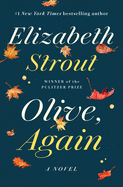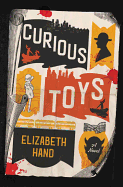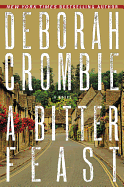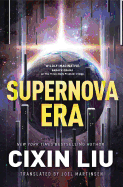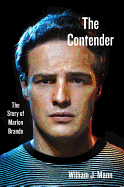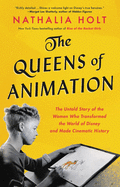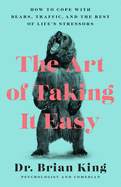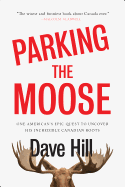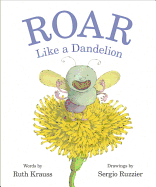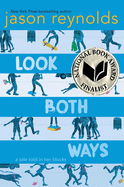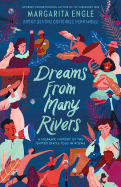 A.J. Hackwith is a queer writer of science fiction and fantasy living in Seattle. She has written two science fiction romances under the name Ada Harper. The Library of the Unwritten (out now from Ace, $16 paperback) is the first entry in her new fantasy series about stories that aren't finished. These books are kept in the Library of the Unwritten, which just happens to reside in Hell.
A.J. Hackwith is a queer writer of science fiction and fantasy living in Seattle. She has written two science fiction romances under the name Ada Harper. The Library of the Unwritten (out now from Ace, $16 paperback) is the first entry in her new fantasy series about stories that aren't finished. These books are kept in the Library of the Unwritten, which just happens to reside in Hell.
What were your initial inspirations for creating The Library of the Unwritten?
Ideas are a bit like ants. One day your kitchen is clean and spotless; the next, you turn on the lights and gosh, there they are. You most probably left all kinds of crumbs that caused them, but they seem to appear on their own.
I was caught in a tech career that had begun to wear on my soul, and I was feeling it when I started writing The Library of the Unwritten. Though I'd always been a writer, for the last decade most of my brain cells had gone to a graduate program, and then writing on the tech/nonfiction side in my day job. There's a lot of glamour in our industry about being the brilliant young talents that turn out novels at 20, and that can lead to the feeling that you've missed your chance. I might have brooded over the books that never got written quite a bit.
By that time, I had been carrying a library of unwritten books around with me for years--it was almost a relief to start writing a story about them.
Occasionally fictional characters escape from the Library and head to Earth to try to convince their authors to finish writing their stories. As an author yourself, do you have characters that you can imagine coming to plead with you?
I can't imagine many of my characters being so polite as to plead, rather than show up in the dark of night and rifle my pockets for prose. That is usually how my books get written, anyway--persistence, and ideas that won't leave me alone.
The ones I would feel the most guilt seeing are the characters from my earliest stories--well-loved but now deeply buried in the trunk. There was that deeply earnest urban fantasy I wrote in college, or the apocalyptic politics vampire half-a-book I attempted. They were shelved for a reason.
There are still ideas I love in there, and may mine for bits and pieces later. But if those characters showed up at my door? You know the sound you make when you get a bad sunburn? Yeah, that.
At one point, Claire, the Librarian, says, "Stories are, at the most basic level, how we make sense of the world." How does writing help you make sense of the world?
Writing is how I string together hard moments to reach the other side. Writing can be meditative. It is a way to parse down and simplify the world. You don't have to act on the enormity of the problem--just find the next word, next sentence.
Stories, however, stories are how we chain together the whole package deal. If writing is the beads--gemstones, pearls, sometimes just mostly polished turds--then stories are the continuous thread we string them on.
We're storytelling creatures. I think, in some ways, evolution took a look at us, realized we were grumpy, hairless apes with absolutely no skill for listening to survival instincts, and decided to give us stories instead. Stories keep us alive. Want something to be remembered, to protect your children when you're not there? Wrap it in a story.
It doesn't matter if it's fiction. Even stories with no overt "lesson" teach us something. Stories are truer than true. There's a quote from Neil Gaiman's Coraline: "Fairy tales are more than true: not because they tell us that dragons exist, but because they tell us that dragons can be beaten." We absorb that, and it makes the next dragon a little more survivable.
One of the most handy tools for survival, to me, is a narrative sense of self. Being able to place yourself in relation to a story is one way of reminding yourself that the story isn't over yet. It has its dangers--thinking your current relationship is Act One of a quirky romance when it is actually Act Three of a cautionary tale is a mistake we've all made--but stories, stories keep us going.
The characters in the Library of the Unwritten visit Hell, Seattle, Heaven, Valhalla and Malta, among other locations. If you could pick one fictional realm to visit yourself, which would you choose?
Oh, what a choice. Am I limiting myself only to realms that exist in my book's world? If so, I think I'm going to pick one that actually readers don't see until book two: the Dust wing. It is the wing of the Library that contains books and stories which were written (thus not in the Unwritten wing) and shared with the world--but then lost to time via any number of circumstances. (War and dogma are popular historical culprits.) There's a shared sense of magic in getting to read something other people loved and lost. I want to read the works of marginalized voices that were erased, or never amplified in the first place. Not just the lost works of Sappho--but the thousands of other women of her time that we don't have records for.
I'd only stay for a visit, mind you. Time in the Dust wing makes the Unwritten wing look like afternoon tea. Being unwritten might turn a story restless, but being forgotten can turn a story into something else entirely.
Can you give us a glimpse into your writing process?
Every idea starts as a prolonged daydream for me. When I think I've got the big bits in my head, I shape up a rough outline. On the scale of plotter versus pantser, I lean heavily on the plotting side. I usually start with a general idea and some big "cinematic" scenes in my head, then work on filling in the connective bits of plot and scenes between them. That usually produces an initial list of scenes/chapters for me to start drafting, but I also discover more necessary bits as I go. Outlines, like any plans, do not survive contact with the enemy.
Any sneak peeks as to what's next?
I just turned in a revision on the sequel to The Library of the Unwritten, and I'm starting to draft the third and final book in the series. It's a weird sensation trying to write a satisfying ending for a bunch of characters readers haven't met yet!
This trilogy certainly isn't the only one in my own personal unwritten library, however. There are projects-in-waiting that I am right now internally referring to as "Shrinepunk-heist book" and "Map! Magic book." I hope readers will enjoy the journey of The Library of the Unwritten enough to join me on the next one. --Jessica Howard
A.J. Hackwith: Hell, Seattle and Beyond
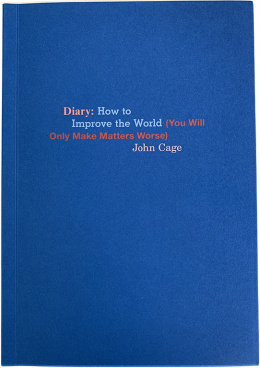 The first time esteemed 20th-century composer John Cage came to life for me, I was listening to the Bang on a Can studio album Field Recordings. On the track "An Open Cage," bassist Florent Ghys transfigures a recording of Cage reading aloud from his diary into an avant-garde musical performance to match and enhance the elder composer's prosody.
The first time esteemed 20th-century composer John Cage came to life for me, I was listening to the Bang on a Can studio album Field Recordings. On the track "An Open Cage," bassist Florent Ghys transfigures a recording of Cage reading aloud from his diary into an avant-garde musical performance to match and enhance the elder composer's prosody.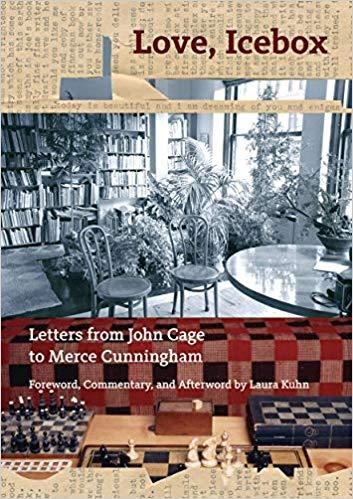 Only such a curious, contrary mind as Cage's might seize on substitution after the fashion his experimental compositions took. An early work, 1939's Imaginary Landscape No. 1, relies on turntables, static and test tones. "This was a prescient endeavor," editor Laura Kuhn writes in the introduction to the John Cage Trust's Love, Icebox: Letters from John Cage to Merce Cunningham ($24.95). For other pieces, he used a grand piano he had outfitted with sound-altering objects placed on and between the strings.
Only such a curious, contrary mind as Cage's might seize on substitution after the fashion his experimental compositions took. An early work, 1939's Imaginary Landscape No. 1, relies on turntables, static and test tones. "This was a prescient endeavor," editor Laura Kuhn writes in the introduction to the John Cage Trust's Love, Icebox: Letters from John Cage to Merce Cunningham ($24.95). For other pieces, he used a grand piano he had outfitted with sound-altering objects placed on and between the strings.


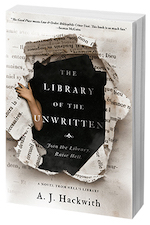


 A.J. Hackwith
A.J. Hackwith